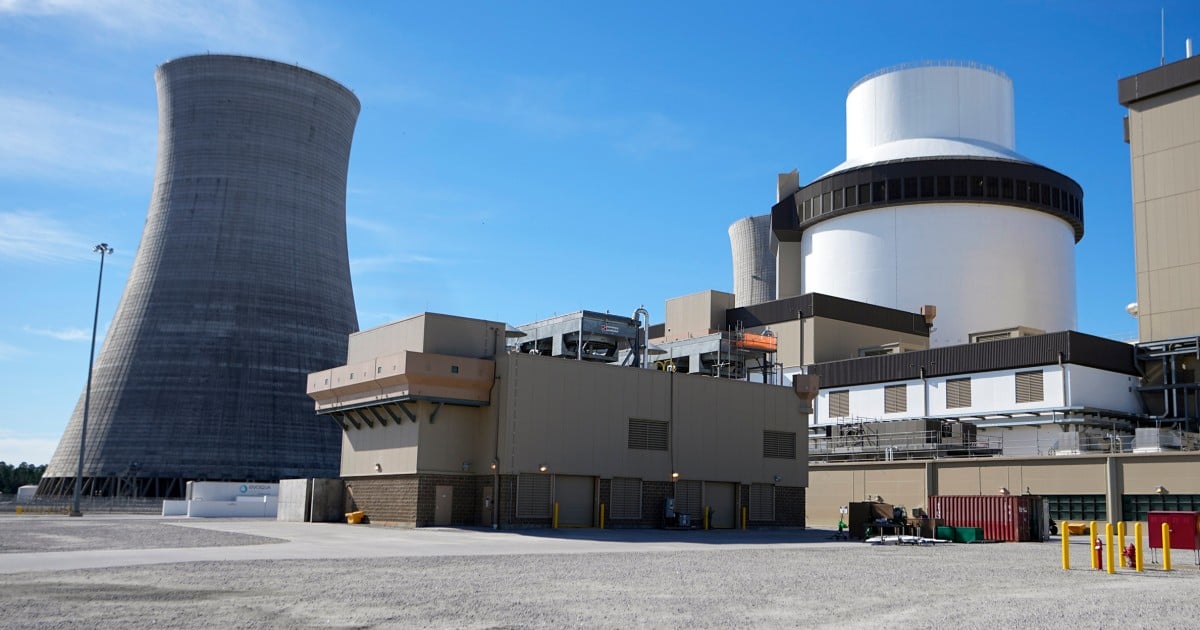- cross-posted to:
- [email protected]
- georgia
- [email protected]
- cross-posted to:
- [email protected]
- georgia
- [email protected]
First U.S. nuclear reactor built from scratch in decades enters commercial operation in Georgia::ATLANTA — A new reactor at a nuclear power plant in Georgia has entered commercial operation, becoming the first new American reactor built from scratch in decades.



Or, maybe people recognize that literally the majority of radioactive mining leaves irradiated lands that disproportionately effect minorities and oppressed communities. The Navajo are still suffering due to the mining of radioactives in their area. The same story is true for nearly every community near such facilities.
while that is certainly an issue, i very much doubt that it is a primary reason (or even remotely a concern) for the average anti-nuclear layperson.
Ah, those activists wouldn’t talk about that mostly, they’d talk about boom and radioactive pollution in places their audience lived in.
Leftists caring about minorities and oppressed communities anyplace far from themselves are a notable rarity.
And since the replacements were coal, oil and gas, which are just as dirty, I’d say your argument isn’t worth shit.
That’s funny.
So you’re willing to move within 1 mile of a uranium mine and live there and drink the well water from that property?
Or are you just willing to sacrifice others for your luxurious lifestyle?
There are alternatives other than continuing to expand our consumption of fossil or nuclear fuels. Hell, most of them don’t even require lifestyle changes from the majority of the population.
No, but it’s the same with gold mines, copper mines, coal, ohoho, oil, ahaha, etc. Scale matters, and in scale for the same amount of energy nuclear gives the least pollution.
Also I invite you to live near a lithium mine.
Or check it, we don’t increase our consumption, so we don’t need more energy. We purposefully decrease it. We allocate resources by necessity.
Widget factories don’t need to operate 24 hours a day, and their owners don’t need to make 500x their employees wages. Kill two birds with one stone, the widget factory is only allocated enough energy to run a few hours a day, and the wages from its executives (who have proven they don’t deserve it by the very lack of care towards sustainability they have presented) go to the workers to ensure they continue to make the same amount despite the decrease in work time.
You do that with all of the industries in the world, and I guarantee we could cut emissions by 50% within a year. Obviously, global implementations are much more complicated than my comment would imply, but I think accepting an end to a system where the only limits placed upon industry is “how much money do you have?” Is necessary entirely to have even a fraction of a chance at beating climate change.
Then, once we’ve stopped wasting massive amounts of energy on inherently useless endeavors, then we can start to talk about the pollution caused by nuclear, but until then, it’s just replacing one extractive industry with another. Whether or not in theory nuclear is less damaging environmentally, our current Money = Right system precludes the possibility of such sustainable practices being put into place. There is always another country that can be corrupted to allow destructive, cheap extraction processes, like what happens in Mail, Burkina Faso, and Niger as we speak.